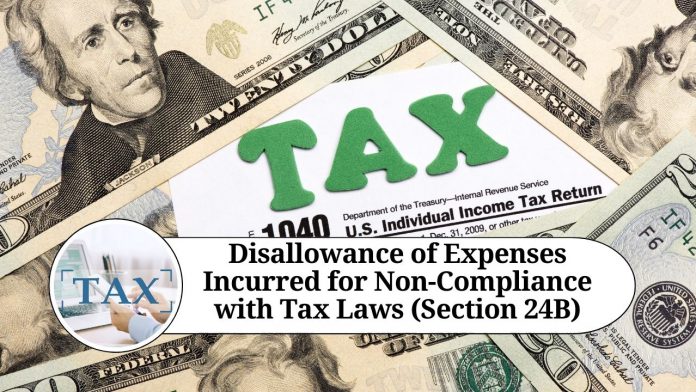Section 87A of the Income Tax Act, 1961 is a beneficial provision for individual taxpayers who fall in the lower income bracket. This section was introduced in the Finance Act, 2013 and provides a tax rebate to individuals with taxable income up to a certain limit.
For the assessment year 2020-21 (financial year 2019-20), the tax rebate under Section 87A is available for individuals whose taxable income does not exceed Rs. 5 lakh.
The rebate amount is calculated as the lower of the following:
- 100% of income tax liability; or
- Rs. 12,500.
This means that if an individual’s income tax liability is less than Rs. 12,500, then the rebate will be equal to the tax liability. However, if the tax liability exceeds Rs. 12,500, then the rebate will be limited to Rs. 12,500.
It’s important to note that the tax rebate under Section 87A is available only to resident individuals. Non-resident individuals, Hindu Undivided Families (HUFs), Association of Persons (AoPs), and Body of Individuals (BoIs) are not eligible for this rebate.
Also, the rebate is applicable only for the assessment year 2020-21. The government may or may not extend this provision for future assessment years.
The objective of Section 87A is to provide relief to small taxpayers and encourage them to continue paying taxes. It is a good way to ensure that individuals with lower income are not burdened with excessive tax liabilities and can meet their basic expenses comfortably.
The tax rebate under this section is in addition to the basic exemption limit provided to individual taxpayers. For the financial year 2019-20 (assessment year 2020-21), the basic exemption limit for individuals below the age of 60 years is Rs. 2.5 lakh. This means that if an individual’s taxable income is up to Rs. 2.5 lakh, they are not required to pay any tax. For senior citizens (age 60 years or more but less than 80 years), the basic exemption limit is Rs. 3 lakh, and for super senior citizens (age 80 years or more), the limit is Rs. 5 lakh.
However, even if an individual’s taxable income is above the basic exemption limit, they can still benefit from the tax rebate under Section 87A if their income does not exceed Rs. 5 lakh.
It’s important to note that the tax rebate under Section 87A is applicable only on the tax computed on the total income. It does not apply to surcharge or cess.
In addition to Section 87A, there are other provisions in the Income Tax Act that provide tax relief to individuals. For example, Section 80C allows individuals to claim deductions for investments made in specified instruments such as Public Provident Fund (PPF), Equity Linked Savings Scheme (ELSS), National Savings Certificate (NSC), etc. The maximum deduction available under this section is Rs. 1.5 lakh.
Similarly, Section 80D allows individuals to claim deductions for payment of health insurance premiums. The maximum deduction available under this section is Rs. 25,000 for self, spouse, and dependent children, and an additional Rs. 25,000 for parents. For senior citizens, the deduction limit is Rs. 50,000.
In conclusion
the tax rebate under Section 87A is a beneficial provision for individual taxpayers with lower income. It is a step in the right direction towards making the tax system more equitable and providing relief to small taxpayers. However, it’s important to note that this rebate is applicable only for the assessment year 2020-21 and may or may not be extended in the future.
Read more useful content:
- section 234e of income tax act
- section 286 of income tax act
- section 90a of income tax act
- section 40a(7) of income tax act
- section 226(3) of income tax act
- section 24 of income tax act
Frequently Asked Questions (FAQs)
Q. Who is eligible for the tax rebate under Section 87A?
Answer: Resident individuals with taxable income up to Rs. 5 lakh are eligible for the tax rebate under Section 87A.
Q. What is the amount of tax rebate under Section 87A?
Answer: The tax rebate is the lower of the following:
100% of income tax liability; or Rs. 12,500.
This means that if an individual’s income tax liability is less than Rs. 12,500, then the rebate will be equal to the tax liability. However, if the tax liability exceeds Rs. 12,500, then the rebate will be limited to Rs. 12,500.
Q. Is the tax rebate under Section 87A available to all taxpayers?
Answer: No, the tax rebate is available only to resident individuals. Non-resident individuals, Hindu Undivided Families (HUFs), Association of Persons (AoPs), and Body of Individuals (BoIs) are not eligible for this rebate.
Q. Is the tax rebate under Section 87A applicable only for the assessment year 2020-21?
Answer: Yes, the tax rebate under Section 87A is applicable only for the assessment year 2020-21. The government may or may not extend this provision for future assessment years.
Q. Does the tax rebate under Section 87A apply to surcharge and cess?
Answer: No, the tax rebate under Section 87A is applicable only on the tax computed on the total income. It does not apply to surcharge or cess.
Q. What are the other provisions in the Income Tax Act that provide tax relief to individuals?
Answer: There are several provisions in the Income Tax Act that provide tax relief to individuals, such as Section 80C, Section 80D, Section 80E, etc. These provisions allow individuals to claim deductions for investments made in specified instruments, payment of health insurance premiums, payment of education loan interest, etc.




















